Related Research Articles

Sir Henry Joseph Wood was an English conductor best known for his association with London's annual series of promenade concerts, known as the Proms. He conducted them for nearly half a century, introducing hundreds of new works to British audiences. After his death, the concerts were officially renamed in his honour as the "Henry Wood Promenade Concerts", although they continued to be generally referred to as "the Proms".

Sir Henry Walford Davies was an English composer, organist, and educator who held the title Master of the King's Music from 1934 until 1941. He served with the Royal Air Force during the First World War, during which he composed the Royal Air Force March Past, and was music adviser to the British Broadcasting Corporation, for whom he gave commended talks on music between 1924 and 1941.

Ernest Bristow Farrar was an English composer, pianist and organist.

Sir Granville Ransome Bantock was a British composer of classical music.
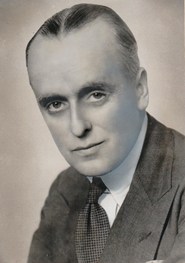
Eric Francis Harrison Coates was an English composer of light music and, early in his career, a leading violist.

Albert William Ketèlbey was an English composer, conductor and pianist, best known for his short pieces of light orchestral music. He was born in Birmingham and moved to London in 1889 to study at Trinity College of Music. After a brilliant studentship he did not pursue the classical career predicted for him, becoming musical director of the Vaudeville Theatre before gaining fame as a composer of light music and as a conductor of his own works.

Sir Herbert Hamilton Harty was an Irish composer, conductor, pianist and organist.
John Linton Gardner, CBE was an English composer of classical music.
Haydn Wood was a 20th-century English composer and concert violinist, best known for his 200 or so ballad style songs, including the popular Roses of Picardy.
Herbert Whitton Sumsion was an English musician who was organist of Gloucester Cathedral from 1928 to 1967. Through his leadership role with the Three Choirs Festival, Sumsion maintained close associations with major figures in England's 20th-century musical renaissance, including Edward Elgar, Herbert Howells, Gerald Finzi, and Ralph Vaughan Williams. Although Sumsion is known primarily as a cathedral musician, his professional career spanned more than 60 years and encompassed composing, conducting, performing, accompanying, and teaching. His compositions include works for choir and organ, as well as lesser-known chamber and orchestral works.
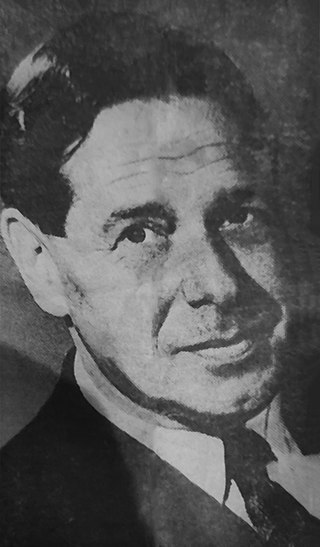
Arthur Leslie Benjamin was an Australian composer, pianist, conductor and teacher. He is best known as the composer of Jamaican Rumba (1938) and of the Storm Clouds Cantata, featured in both versions of the Alfred Hitchcock film The Man who Knew Too Much, in 1934 and 1956.

Cecil Armstrong Gibbs was a prolific and versatile English composer. Though best known for his choral music and, in particular, songs, Gibbs also devoted much of his career to the amateur choral and festival movements in Britain. Although his music is rarely played today he attained a high level of popularity in his lifetime. His slow waltz "Dusk" for orchestra and piano earned him more royalties than any of his other works combined. It was requested by Princess Elizabeth to be performed on her 18th birthday.
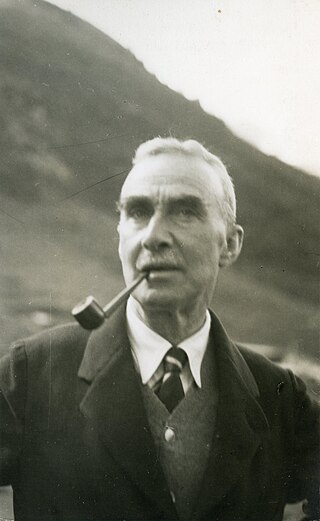
Cyril Bradley Rootham was an English composer, educator and organist. His work at Cambridge University made him an influential figure in English music life. A Fellow of St John's College, where he was also organist, Rootham ran the Cambridge University Musical Society, whose innovative concert programming helped form English musical tastes of the time. One of his students was the younger composer Arthur Bliss, who valued his tuition in orchestration. Rootham's own compositions include two symphonies and several smaller orchestral pieces, an opera, chamber music, and many choral settings. Among his solo songs are some settings of verses by Siegfried Sassoon which were made in co-operation with the poet.

Norman Houston O'Neill was an English composer and conductor of Irish background who specialised largely in works for the theatre.
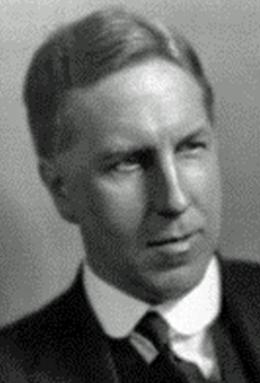
Thomas Frederick Dunhill was a prolific English composer in many genres, though he is best known today for his light music and educational piano works. His compositions include much chamber music, a song cycle, The Wind Among the Reeds, and an operetta, Tantivy Towers, that had a successful London run in 1931. He was also a teacher, examiner and writer on musical subjects.
Charles William Eric Fogg was an English composer, conductor and BBC broadcaster. His early works were influenced by Igor Stravinsky, though his later pieces owe more to Granville Bantock and Richard Strauss and even William Walton. Much of his music has been lost.
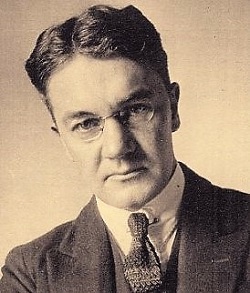
Julius Allan Greenway Harrison was an English composer and conductor who was particularly known for his interpretation of operatic works. Born in Lower Mitton, Stourport in Worcestershire, by the age of 16 he was already an established musician. His career included a directorship of opera at the Royal Academy of Music where he was a professor of composition, a position as répétiteur at the Royal Opera House, Covent Garden, conductor for the British National Opera Company, military service as an officer in the Royal Flying Corps, and founder member and vice-president of the Elgar Society.
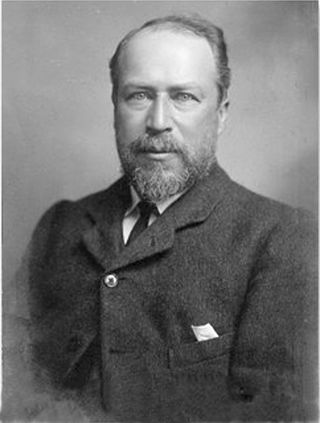
Charles Harford Lloyd was an English composer who became a well-known organist in his time.
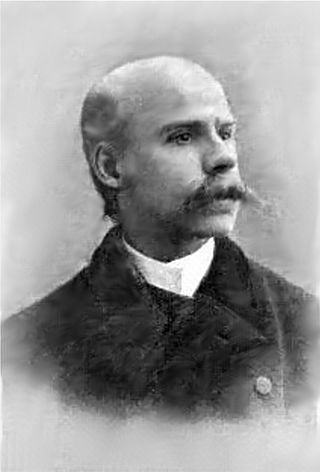
Charles Swinnerton Heap was an English organist, pianist, composer and conductor.
Montague Fawcett Phillips was a British composer of light classical music and songs, including the popular operetta The Rebel Maid of 1921.
References
- Grove Dictionary of Music and Musicians (1952 Edition)
- Some British conductor-composers by Philip L. Scowcroft. Part 4 - at Music Web International
- Vaughan Williams and Oxford